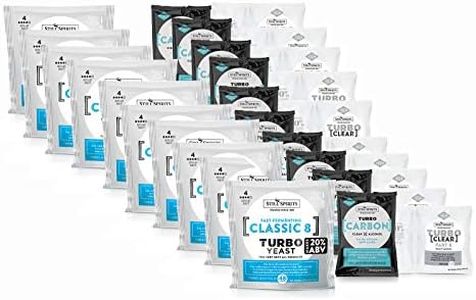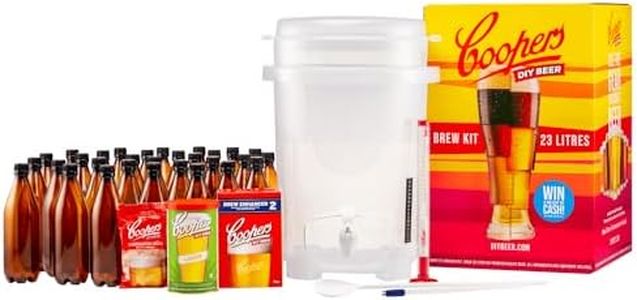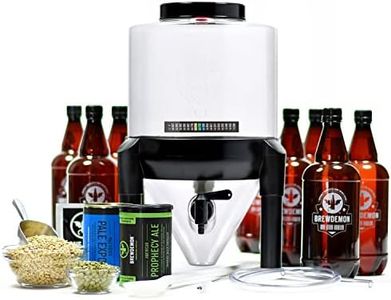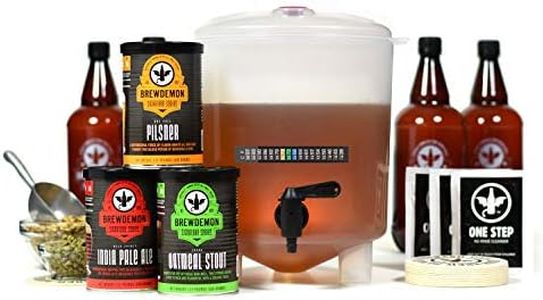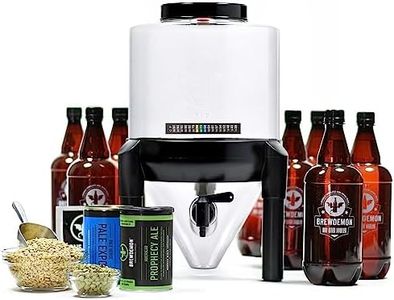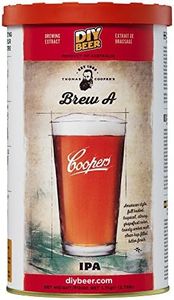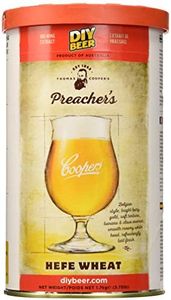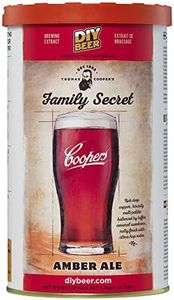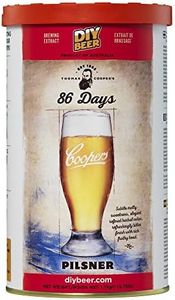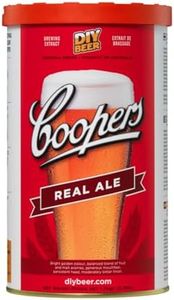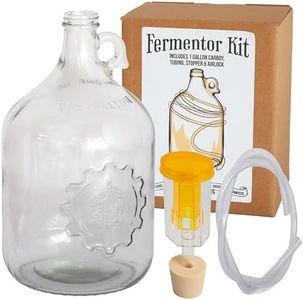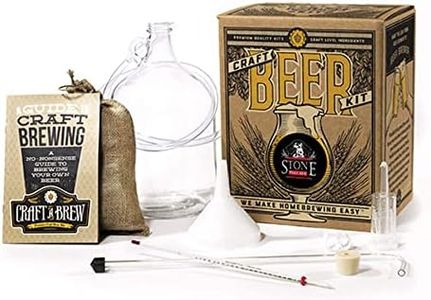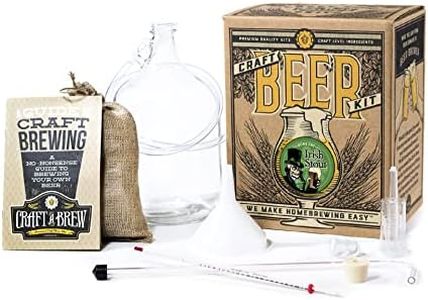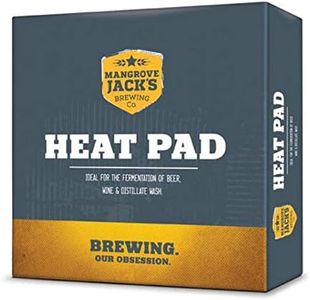We Use CookiesWe use cookies to enhance the security, performance,
functionality and for analytical and promotional activities. By continuing to browse this site you
are agreeing to our privacy policy
10 Best Beer Making Kits
From leading brands and best sellers available on the web.By clicking on a link to a third party's website, log data is shared with that third party.
Buying Guide for the Best Beer Making Kits
Choosing a beer-making kit can be an exciting start to home brewing, whether you’re a beginner or want to refine your brewing skills. The right kit should match your level of experience and the type of beer you like to drink. Considering different options will help ensure you have the right tools and ingredients for brewing success. To make the best choice, it’s important to understand the main features that influence convenience, skill level, and the kind of beer you can produce.Batch SizeBatch size describes how much beer you can make with one brewing cycle, usually measured in gallons or liters. This is important because it determines how much beer you'll end up with after each brew, influencing both enjoyment and storage needs. Kits for beginners often make smaller batches (around 1-2 gallons), which are easier to handle and quicker to brew, while larger kits (5 gallons or more) are typically for more experienced brewers and those who want to brew enough to share or store. If you are just starting or have limited space, a smaller batch is more manageable. If you know you'll want to share your beer with friends or brew less often, a larger batch size might suit you better.
Ingredients IncludedMost kits come with basic ingredients like malt extract, hops, yeast, and sometimes specialty grains or flavorings. This aspect matters because the included ingredients will affect the taste and complexity of your final beer. Some kits include only the essentials for one type of beer, while others offer variety packs or customization options. If you want a simple process and guaranteed results, look for kits with pre-measured, all-in-one ingredient packages. If you like experimenting or adding your own twists, choose a kit that allows for ingredient swaps or comes with extras.
Brewing EquipmentBrewing equipment is what you actually use to make and ferment the beer, such as fermentation buckets, airlocks, bottles, cappers, and measuring tools. This is important because having the right gear will make the process smoother and more enjoyable, especially for beginners. Some kits are 'all-in-one'—providing everything from brewing vessels to bottles—while others may require you to source basic kitchen items yourself. If you're starting from scratch, it's best to choose an all-inclusive set. If you already have some equipment, a more basic kit might be enough.
Skill LevelKits are often labeled for beginners, intermediate, or advanced brewers. This matters because the complexity of the brewing and fermenting process can vary a lot between kits. Beginner kits simplify steps and minimize technical tasks, while advanced kits require more attention, bigger equipment, or more precise temperature control. Think about your comfort and readiness—if new to brewing, look for 'starter' or 'beginner' kits. If you have some experience, intermediate kits provide more control and variety. Advanced kits are best reserved for those confident in following multi-step processes and troubleshooting.
Type of BeerThe type of beer the kit is designed to make can range from light ales and lagers to rich stouts or specialty brews. It’s important because different beer styles require different ingredients and sometimes different processes or fermentation times. Choose a kit that matches your most enjoyed beer style or one you’re interested in learning about. If you’re unsure, select a kit with a versatile or popular style to get started.
Reusable vs. One-Time UseSome beer-making kits are designed for repeated use and come with sturdy, reusable equipment, while others are more disposable. This matters because a reusable kit is a better investment if you plan to brew regularly, while a one-time kit offers a simple try-it-and-see experience. Decide whether you want to commit to homebrewing long-term or just want to try it out once before investing in more gear.
